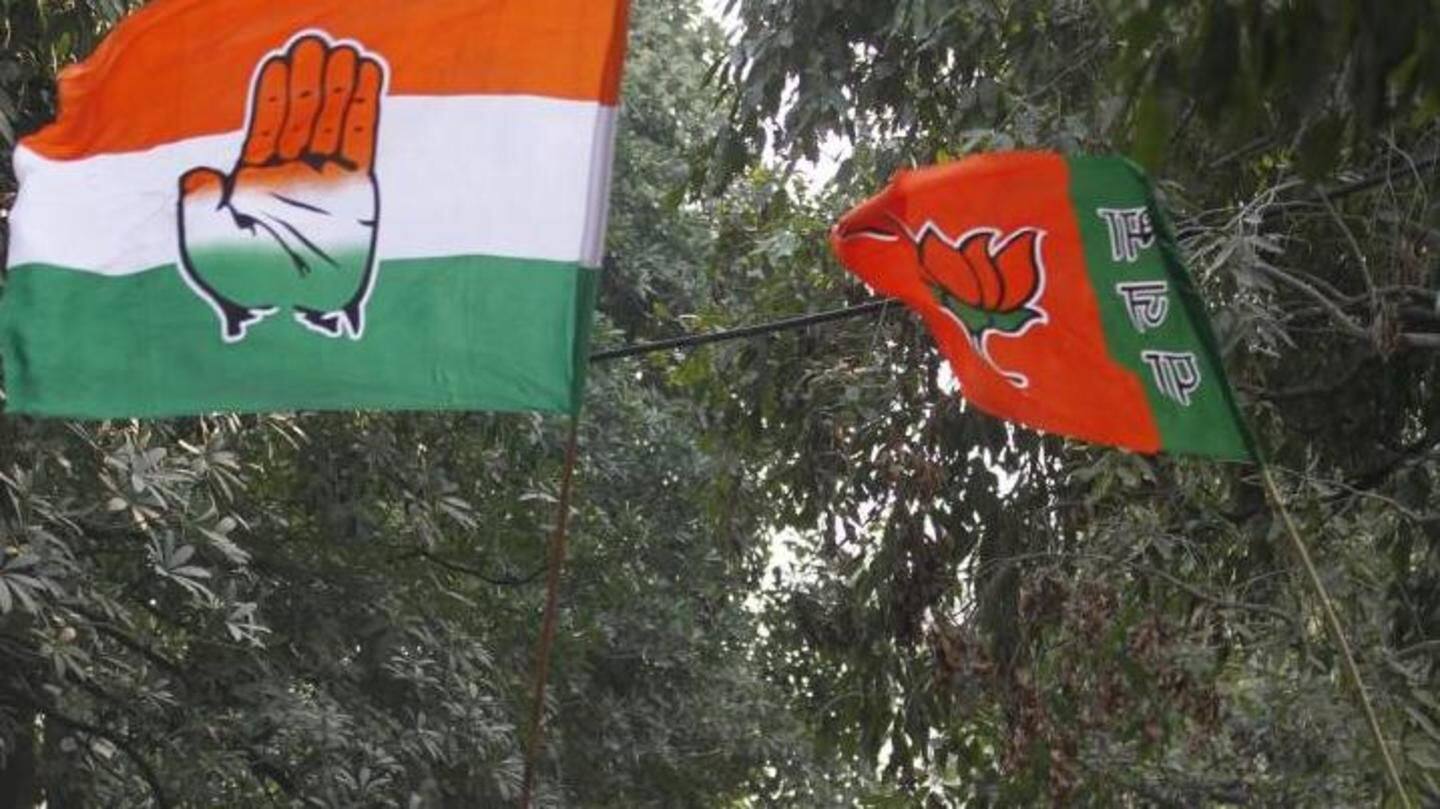
MP-elections: BJP trains 65,000 'cyber-warriors' to battle Congress' 5,000 'sipahis'
What's the story
Ahead of Madhya Pradesh assembly elections scheduled for later this year, both Congress and Bharatiya Janta Party have prepared a cyber army to counter each other on social media. While platforms like Facebook and Twitter will be used, both warring parties would focus more on WhatsApp, reports suggest. While BJP's strength is 65,000, Congress has employed 5,000 people for the task.
The numbers
Before citizens vote, battle will be fought on the internet
Shivraj Singh Dabi, BJP's I-T cell in-charge, revealed that in the past three months, 65,000 people have been employed as 'cyber warriors', and another 5,000 are set to join by next month. On the other hand, Congress has hired 5,000 'Rajiv Ke Sipahi', named after former Prime Minister Rajiv Gandhi. The party will begin training them from June 25, said state leader Dharmendra Bajpai.
The plan
Facebook and Twitter aside, both parties will focus on WhatsApp
Both Dabi and Bajpai have made it clear WhatsApp will be tapped a lot during the campaign. BJP's strategist Dabi said, "We are going to be doubly active on WhatsApp as it's the biggest communication tool, especially to reach out to commoners and villagers." Promotion on Facebook and Twitter will instead focus on wooing young voters and informing them about their party's achievements.
Details
Both Congress and BJP claim their cyber game is better
Explaining how the BJP foiled Congress' attempt to capitalize on 10-day long farmers' protests, Dabi said they reminded farmers of the initiatives taken by the government for their benefit. Congress had similar claims. Bajpai maintained the Twitter hashtag #RahulWithFarmers was a huge success and trended for nearly a whole day when he visited Madhya Pradesh's Mandsaur on June 6.
Do you know?
Bottom line: Things are going to get ugly
Ahead of the campaign on the ground, these plans of Congress and BJP hint things are only going to get nastier. None of them is likely to hold back attempts to bring the other down, even if it means possibly spreading fake news.